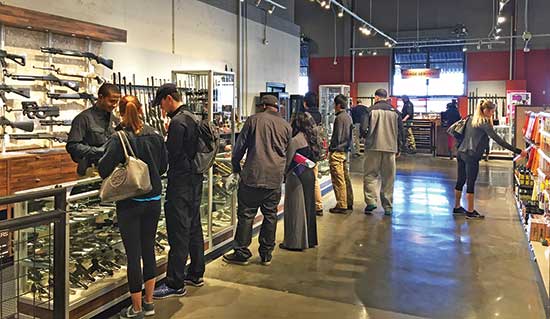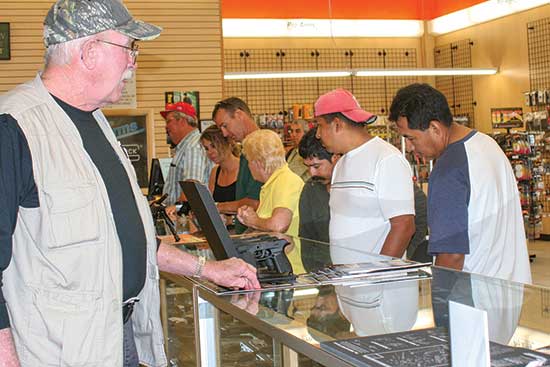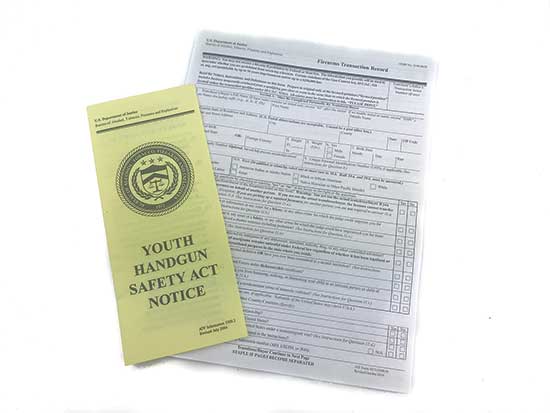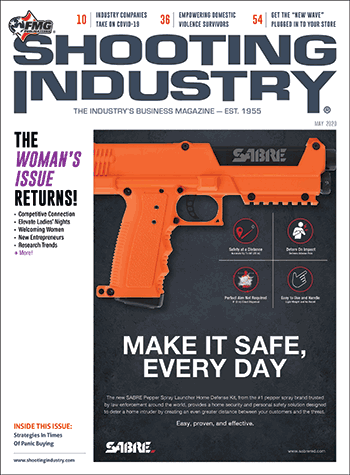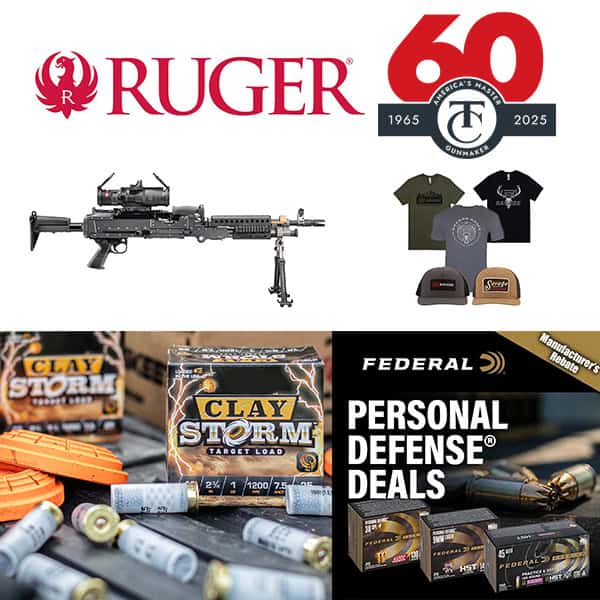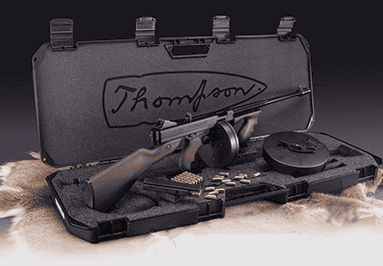In Times Of Panic Buying
Editor’s Note: Due to the novel coronavirus pandemic and its impact on the U.S. firearms industry, we asked Massad Ayoob to contribute an article on tangible steps your store can take to deal with this unprecedented surge of customers. Next month’s issue will feature Ayoob’s strategies for selling personal-defense firearms to women.
“Panic buying” is an ugly term. Maybe an impending election tells people who’ve always thought about getting a gun with which to protect themselves and their families to realize, “If the predicted winner gets into office, he or she is going to make it impossible for me to buy the gun I want, so this is my last chance to buy it.” We saw it somewhat in the 2008 presidential election cycle, a little more so in 2012 and everywhere in 2016.
Perhaps it’s an imminent hurricane that makes people realize, “I’m not prepared for a disaster scenario where there’s ruthless looting and police can’t protect me.” Perhaps it’s a predicted man-made disaster. (Those of you a little longer in the tooth: Remember Y2K?)
Currently, of course, is the 24/7 news media promising a plague of epic proportions caused by the COVID-19 virus. When the various levels of government began closing schools, theaters and restaurants (and isolating people in their homes) — stuff got real, and another mass migration to America’s gun shops was on.
Contrary to what the gun prohibitionists say, retail gun dealers aren’t merchants of fear; what they sell is the antidote to fear — the capability of self-protection. When it was pointed out courts were closing, many police agencies would only respond to the most serious emergency calls and shortages of food and other staples were already a reality, the public reasonably feared a societal breakdown the Thin Blue Line would be too thin to protect them from.
Handling The Wave Of Customers
When the lines of anxious customers get deep, it’s easy for a shop’s regular sales staff to be overwhelmed. This sort of thing can lead to innocent paperwork errors by a rushed employee, which could be most troublesome at your next BATFE audit. While some of your customers have done their homework and know exactly what they want, there will be others who are buying their first gun and need to be educated somewhat by your staff if they’re going to make a purchase. This, of course, eats up much more time for your regular staff.
Just as many police departments have reserve officers who only work part-time when needed, strongly consider a “reserve staff” of gun-savvy friends and customers who would be comfortable on the other side of the counter. If you already have a steady staff of full- and/or part-time personnel, that’s fine; we’re talking now about people who don’t work for you regularly, but would be amenable to doing so when things make traffic unusually heavy.
Retail gun dealers aren’t merchants of fear;
what they sell is the antidote to fear —
the capability of self-protection.
If the mass buying spree has been triggered by impending disaster, remember everyone including your regular staff now has their own set of imperatives that may cost them time at work. They have windows to board before the hurricane strikes, food and meds to buy for their families before the stores close or the shelves get bare. This is one more seldom-considered reason to have a reserve staff you can count on for a few hours, or even a few days, at a time.
Make sure each of these “reserves” is familiar with the inventory. As gun enthusiasts they know the products already, but may have their own very strongly defined likes and dislikes.
It’s important they know it’s not their job to transfer their preferences to the buyer. Give them a crash course on how to question the customer about their perceived needs, who will be using the defense gun and how to guide them to what the best choice is for them, not necessarily what’s best for the sales person.
Closing The Sale
Yes, any authorized employee can complete the sale. However, someday there’s going to be a regulatory audit of your 4473s and bound book, and with this in mind it might be a good idea during a “customer crush” to let the part-timers bring the sale up to the point of “I’ll take that one,” and then walk the customer and that particular gun to a designated check point (which hopefully won’t turn into a choke point) to do the paperwork and transfer.
It would be a good idea for one of your senior employees, perhaps a trusted individual or even an official “responsible party,” to supervise the paperwork. The pressure of time and backed-up customers greatly increases the chance of a recording error that can come back later to bite.
After The Crisis Blows Over
“And this, too, shall pass.” Reporters and dealers alike noted a very substantial number of first-time gun buyers were among the hordes who flooded the gun shops during the COVID-19 outbreak. They will eat their food and use up their piles of toilet paper after the pandemic subsides, but the gun — that most durable of durable goods (people can’t just throw away when they don’t need it anymore) — will remain. Ethics require us to take this into consideration.
If nothing else, make sure everyone on your staff, full- or part-time, knows to ask if the customer is new to firearms. Don’t let them leave without asking if they’d be interested in a quick-access locked storage box. Make sure they know how to properly use the lock that comes in the box with every gun.Many dealers give every buyer a form to sign where they check off boxes as to their knowledge of safe firearms usage. Handing out safety pamphlets with every firearm you sell is never a bad idea.
Your sales person should make a point of showing the customer the owner’s manual, and encouraging them to read it. Too often the owner’s manual gets tucked under a layer of foam in the gun box, or under some accessory or hidden by the warranty card on top of it — going unnoticed. If selling a used gun to which the owner’s manual is lost, remind the buyer they can most likely find the manual online.
Promote Training
If your shop offers firearms training, have a pamphlet or leaflet on available classes, etc., ready to go with every gun sold. If training isn’t a part of your own retail business, you probably know competent firearms instructors in the area. And, if they have any business sense, they’ll be happy to supply the handout material at no cost to you.
Now the customer leaves with a resource to learn still more competence and safety with their new gun, and if they do something stupid with it down the road, you’ve done everything possible to prevent it.
Dealers, how has your store been impacted by the novel coronavirus pandemic? We want to hear from you! comments@shootingindustry.com

